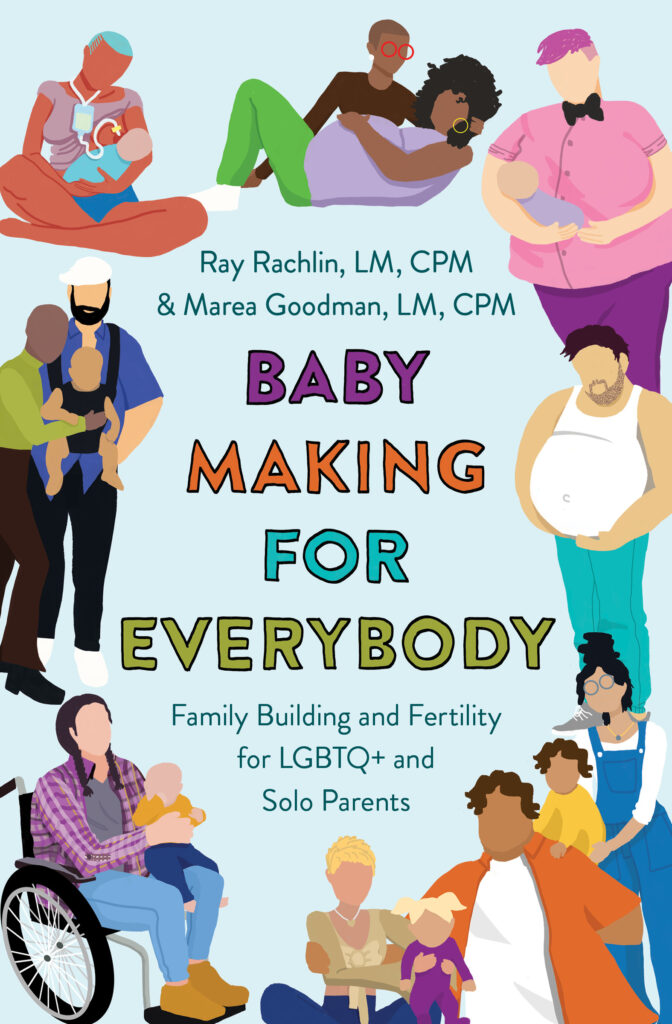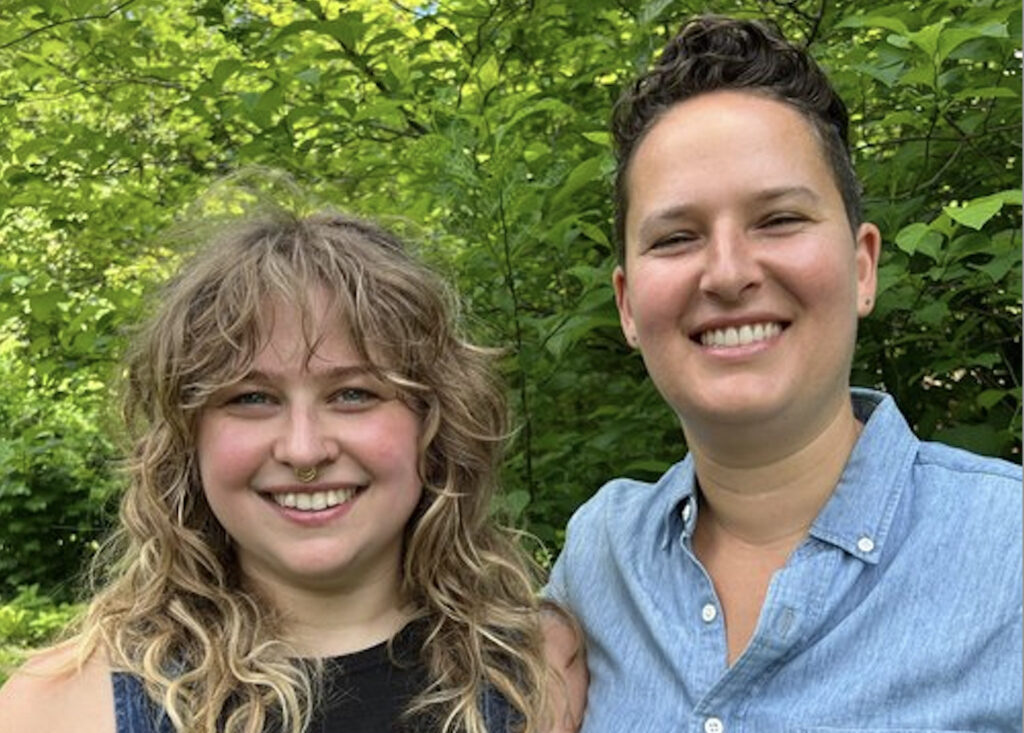Two queer midwives have a new book out on family building and fertility
Baby Making for Everybody: Family Building and Fertility for LGBTQ+ and Solo Parents by queer millennial midwives Marea Goodman (she/her) and Ray Rachlin (they/she) is out now.
Baby Making for Everybody is a how-to guide and celebration of the many ways that people create families outside of the traditional heterosexual-nuclear-family model.
Author team and millennial midwives Marea and Ray have dedicated their professional — and much of their personal lives — to queer and nontraditional family-building and parenthood. They both envision a world filled with thriving, interconnected LGBTQ+ and solo parents where everybody has access to all of the information and support they need to create and grow families in the ways that make the most sense for them.

Baby Making for Everybody combines Marea and Ray’s professional expertise as midwives with personal narratives and first-person community wisdom to provide and empower prospective parents with the information they need to build their families. Readers will find practical information about options for having children and how to make decisions within the systems that are not designed to meet the needs of LGBTQ+ people and folks pursuing solo parenthood. They will also find many personal stories from queer and solo parents who grew their families and have shared their experiences to support their communities.
Each chapter offers detailed, gender-affirming, body-positive advice for every step of the family building process, including:
- Fertility tracking for people with uteruses
- Choosing a sperm donor, egg donor, or surrogate
- Legal considerations for LGBTQ+ families
- Navigating pregnancy and gender identity
- IUI, ICI, and IVF procedures
- Foster parenting and adoption
- Miscarriage and infertility
The following has been excerpted from Baby Making for Everybody by Ray Rachlin and Marea Goodman. Copyright © 2023 by Ray Rachlin and Marea Goodman. Reprinted with permission of Balance Publishing, an imprint of Hachette Book Group. All rights reserved.
Why Do You Want to Become a Parent?
Let’s start with this question: Why do you want to become a parent? Some people may feel that they want a child to connect to a greater purpose in life. Others are looking for a certain kind of closeness and connection that only a child can provide. For others, they imagine that sharing a baby with their partner will connect them together forever, and this can be a primary motive in family formation. Without judgment, it’s important to spend some time reflecting on this huge decision to bring another life into the world or to create a new family with a child who was born into another family.
WHAT’S YOUR WHY?
The following questions are to encourage you to explore your why about pursuing parenthood. We recommend spending some time journaling about each of them. (Try to do so without thinking about your answers too hard, just letting the words come.) Afterward, if you have a partner or a prospective co‑parent, these can become great conversation prompts. As with all offerings throughout this book, feel free to alter these prompts in any way and make them your own.
When I imagine becoming a parent, I feel . . .
I realized I wanted to become a parent when . . .
I want / don’t want to have a biological child because . . . (circle one, and explain)
If I don’t have a child, I would feel . . .
I’m scared that in becoming a parent, I will . . .
I’m excited to become a parent because . . .
I will know I’m ready to parent when . . .
I will know that I have enough community support to parent when . . .
Getting in Touch with Your Priorities
After answering these questions, take some time to determine your top three reasons for becoming a parent. Write them down on a piece of paper and keep it somewhere visible— you can tape it to your wall in your bedroom or keep it somewhere that you’ll be able to see throughout the coming months or years of building your family.
This may look something like:
MY FAMILY-BUILDING PRIORITIES
To raise a child with as much patience, tenderness, and love as I possibly can.
To have a child who is genetically related to me.
To heal generational trauma through parenting.
Your priorities may look very different from this. But we think it’s helpful to create a visual that can serve as your guiding light in this process of family building. Remember, you can always change or
revise your priorities. Flexibility, a key to parenthood, is also essential for conception.
We also encourage you to think about your needs in how you build your family. What, of the help available for conception or family building, resonates best with your lived experience and family- planning wishes? Thinking about your experiences with medical systems, family, and your own body up until this point, you may consider questions like:
- Have your experiences receiving healthcare felt comfortable or uncomfortable?
- Do you want to lead your conception process, have a medical professional lead your process, or something in between?
- Do you want lots of information about your body’s fertility from medical tests? What is your initial reaction to the idea of fertility treatments?
- Is privacy or relationships—with partner(s) or donors—a priority for you?
- How do you define family? Is being biologically related to your child important to you? Why or why not?
- Are there ways you do or don’t want a child to come into your family?
There is no one-size-fits-all approach to the tools we use to grow our families. Understanding our priorities in how we want to navigate care and the whole conception process can help us be empowered regardless of how our path to parenthood unfolds.
I was always very clear that I wanted to lead my fertility process. I knew when I was ovulating and I wanted the least amount of intervention from doctors possible because I had not had positive experiences receiving healthcare. That priority guided me and my partner through a lot of decision-making, through switching donors and conception methods, and later when I decided to pursue infertility interventions I used my primary care doctor who I trusted instead of a fertility clinic. My conception journey was longer than I anticipated, but I felt in control and my partner and I had the time and space to make decisions that were right for us. — Ray






